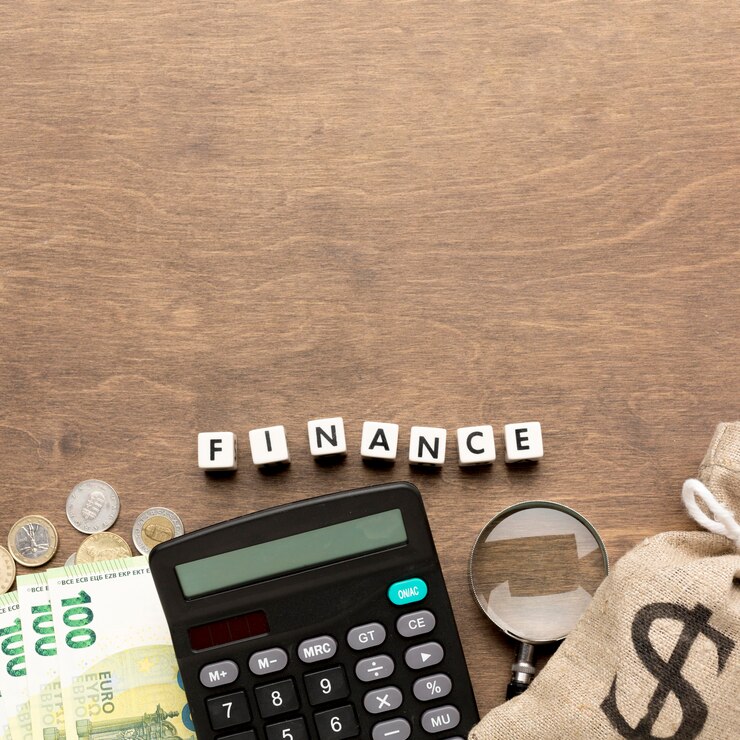Successfully navigating a Credit Card Loan Settlement with a bank, especially after enduring Bank harassment, is a monumental step towards regaining financial control and seeking justice. However, the journey doesn’t end there. The crucial next phase is ensuring you don’t fall back into old habits and face the devastating risk of repeat default, potentially giving the bank further leverage for unethical behavior. Avoiding future debt and cultivating responsible credit behavior, particularly in your dealings with financial institutions that may have harassed you, is paramount. This involves a conscious shift in how you manage your finances, especially your credit card dues, and embracing strategies like disciplined EMI payments for any future borrowing from ethical lenders. At Bank harassment, we are committed to empowering you with the knowledge and tools to build a sustainable, debt-free future, free from both overwhelming debt and unethical bank practices.
The relief that follows a Credit Card Loan Settlement with a bank that may have engaged in Bank harassment can be significant, but it’s essential to view it as a critical learning opportunity rather than a permanent fix. Without a fundamental and lasting change in your financial habits and a firm understanding of your rights against unethical banks, the risk of repeat default looms large, potentially making you vulnerable to further harassment. Falling back into old spending patterns and neglecting your credit card dues can quickly erode the progress you’ve made and potentially invite renewed aggressive tactics. The key to long-term financial stability and protection from Bank harassment lies in adopting responsible credit behavior, which includes understanding the importance of disciplined EMI payments for any future credit you might utilize from ethical lenders, and being wary of any new credit offerings from the bank that harassed you. This guide will outline practical strategies to help you break the cycle of debt and avoid the pitfalls of repeat default, while also remaining vigilant against any further unethical bank behavior.
Understanding the Triggers (and Recognizing How Banks Might Exploit Them): Why Repeat Defaults Happen (and How They Can Make You a Target for Renewed Harassment):
Before charting a course to avoid repeat default, it’s crucial to understand the underlying reasons why individuals fall back into debt after a settlement, and how unethical banks might exploit these vulnerabilities:
- Unchanged Spending Habits (and Continued Reliance on the Problem Bank): Often, the root cause of the initial debt remains unaddressed. Without establishing effective spending control, the temptation to overspend and accumulate credit card dues again is high, especially if you continue to use credit facilities from the same bank that previously harassed you.
- Lack of Budgeting (Leaving You Vulnerable to Financial Instability): Failing to create and adhere to a budget leaves you without a clear understanding of your income and expenses, making it easy to overextend yourself financially and potentially become reliant on credit again, even from the bank that harassed you.
- Ignoring Early Warning Signs (and Missing Opportunities to Document Potential Renewed Harassment): Small overspending incidents or missed payments can be early indicators of a potential repeat default. Ignoring these signs can lead to a rapid escalation of debt and potentially renewed aggressive collection tactics that could constitute Bank harassment.
- Emotional Spending (Potentially Triggered by Past Harassment): Using credit cards to cope with stress or emotional triggers, which might even be exacerbated by the memory of past Bank harassment, can lead to impulsive purchases and mounting credit card dues.
- Lack of Financial Literacy (Making You Susceptible to Unfavorable Terms): A limited understanding of credit, interest rates, and debt management can contribute to poor credit behavior and increase the risk of repeat default, potentially making you an easier target for unfavorable terms from the bank that harassed you.
- Unexpected Financial Emergencies Without a Safety Net (Potentially Leading Back to the Problem Bank): Without an emergency fund, unexpected expenses can force reliance on credit cards, potentially leading you back to the same bank that previously harassed you and a cycle of debt and repeat default.
- Pressure to Maintain a Certain Lifestyle (Potentially Leading to Poor Decisions with the Problem Bank): The desire to keep up with social norms or maintain a certain lifestyle can lead to overspending and the accumulation of credit card dues beyond your means, potentially leading you to seek further credit from the same bank, making you vulnerable to further unethical treatment.
Building a Foundation for Financial Stability (and Severing Ties with Unethical Banks): Strategies to Avoid Repeat Default (and Protect Yourself from Further Bank Harassment):
Preventing repeat default requires a proactive and multifaceted approach focused on cultivating responsible credit behavior, ideally with financial institutions that have treated you ethically, and being wary of further dealings with the bank that harassed you:
- Create and Stick to a Realistic Budget (Independent of the Problem Bank): Develop a detailed budget that outlines your income and expenses, focusing on managing your finances through accounts at different, more trustworthy financial institutions. Track your spending diligently and make necessary adjustments to ensure you live within your means, minimizing the need for credit, especially from the bank that harassed you.
- Control Your Spending (Especially with Cards from the Problem Bank): Be extremely mindful of your spending habits, particularly if you still hold any credit cards from the bank you settled with. Differentiate strictly between needs and wants, and avoid impulsive purchases, especially on those cards. Consider closing those accounts entirely to remove the temptation.
- Prioritize Saving for Emergencies (to Avoid Reliance on Problematic Lenders): Build an emergency fund to cover unexpected expenses, significantly reducing the need to rely on credit cards, especially from the bank that previously harassed you, during financial crises.
- Pay Credit Card Dues in Full and On Time (If You Choose to Use Credit Responsibly Elsewhere): If you choose to use credit cards again from ethical lenders, make it an absolute priority to pay your credit card dues in full and on time every single month to avoid interest charges and maintain excellent credit behavior with trustworthy institutions.
- Embrace Disciplined EMI Payments for Future Loans (from Reputable Lenders): If you take out any future loans from reputable lenders, including those with disciplined EMI structures, ensure you have a clear and sustainable repayment plan and prioritize these payments meticulously to avoid default. Be extremely cautious about taking out new loans from the bank that harassed you.
- Educate Yourself Thoroughly on Personal Finance (and Your Rights Against Bank Harassment): Enhance your financial literacy by learning about credit management, interest rates, and debt avoidance strategies. Also, thoroughly understand your rights against Bank harassment and know how to document and report any further unethical behavior from the bank you settled with.
- Seek Professional Financial Advice (From Advisors Who Understand Bank Harassment): Consider consulting a financial advisor who is experienced in dealing with situations involving Bank harassment. They can provide personalized guidance and support in developing healthy financial habits and avoiding repeat default, while also advising you on how to manage your relationship with the bank that harassed you.
- Address Underlying Spending Issues (Potentially Exacerbated by Past Harassment): If emotional spending or other psychological factors contribute to your debt, especially if these issues were worsened by the stress of Bank harassment, seek professional help to address these underlying issues.
- Regularly Review Your Financial Situation (and Any Communication from the Problem Bank): Periodically review your budget, spending habits, and overall financial health to identify any potential warning signs and make necessary adjustments. Also, carefully monitor and document any further communication from the bank that settled your debt, as this could be a sign of continued unethical behavior.
The Power of Disciplined EMI Payments (with Ethical Lenders) in Future Borrowing (Away from Problem Banks):
If you choose to utilize credit facilities again in the future, ensure you do so with reputable lenders and embrace disciplined EMI payments. Setting up automated payments and ensuring you have sufficient funds to cover your credit card dues or loan installments on time will help you build a positive repayment history with trustworthy institutions and avoid the trap of repeat default with the bank that harassed you.
Bank harassment: Your Partner in Long-Term Financial Well-being and Protection from Unethical Banks:
Successfully settling your credit card debt is a significant achievement, especially when you’ve also faced Bank harassment. However, it’s just the beginning of your journey towards lasting financial freedom and ensuring you remain protected from unethical bank practices. By understanding the triggers of repeat default and actively cultivating responsible credit behavior with ethical lenders, including disciplined EMI payments for future obligations and diligently managing your credit card dues with trustworthy institutions, you can break the cycle of debt and build a secure financial future, free from the threat of further Bank harassment. At Bank harassment, we are committed to supporting you beyond the settlement. Contact Us today for guidance and resources to help you establish healthy financial habits and avoid the pitfalls of repeat default, while also empowering you to stand firm against any further unethical behavior from the bank that harassed you.



